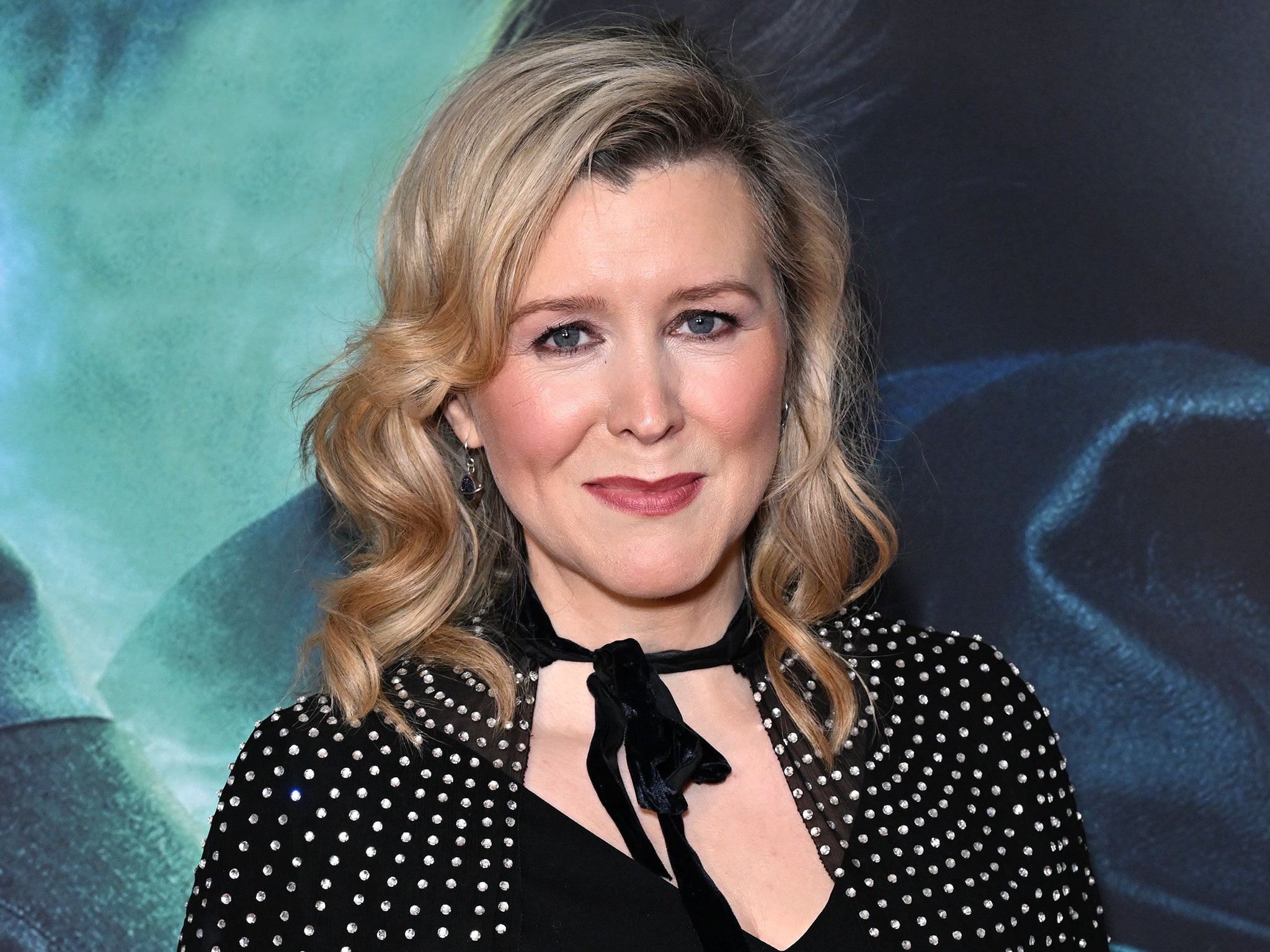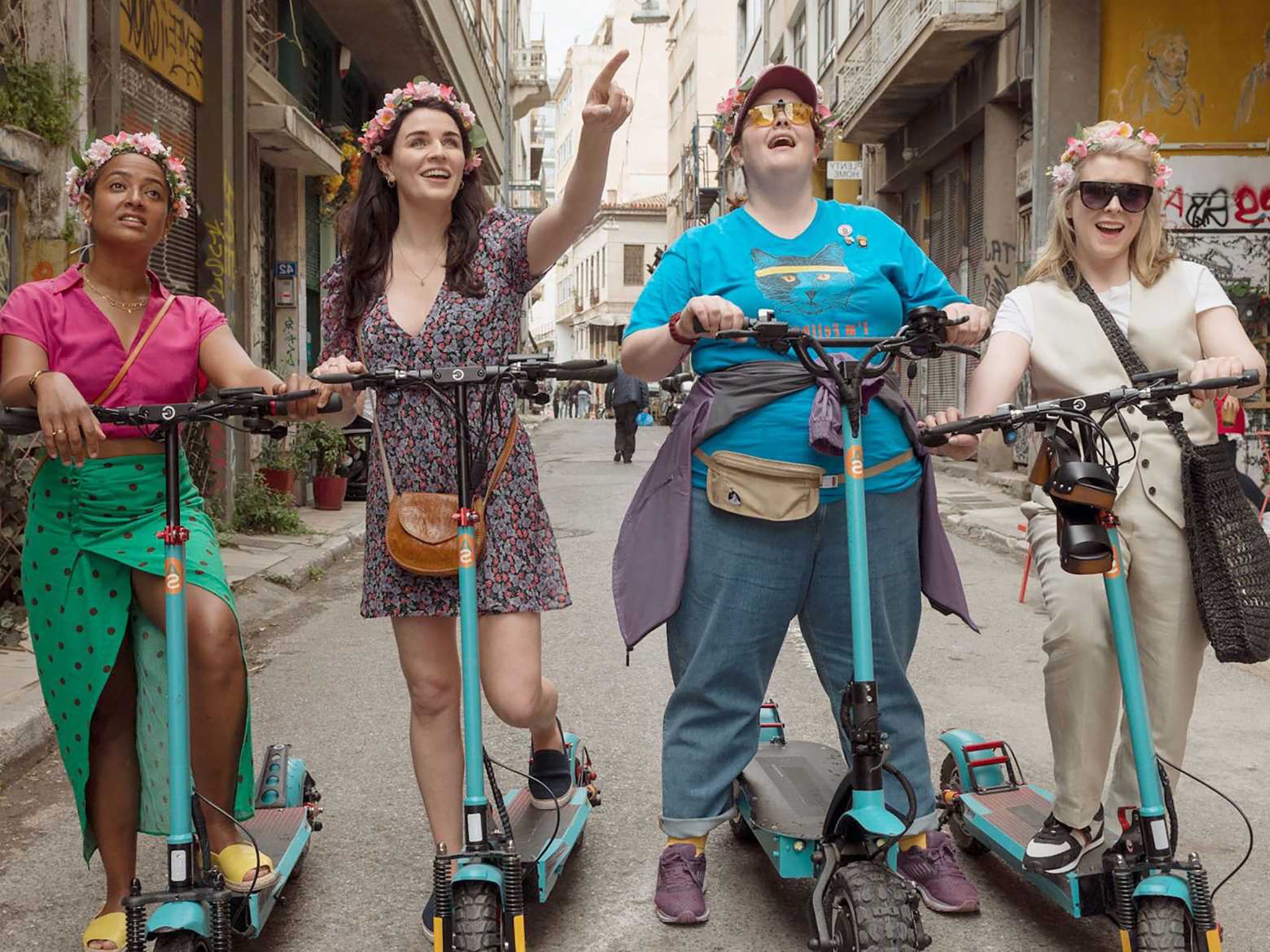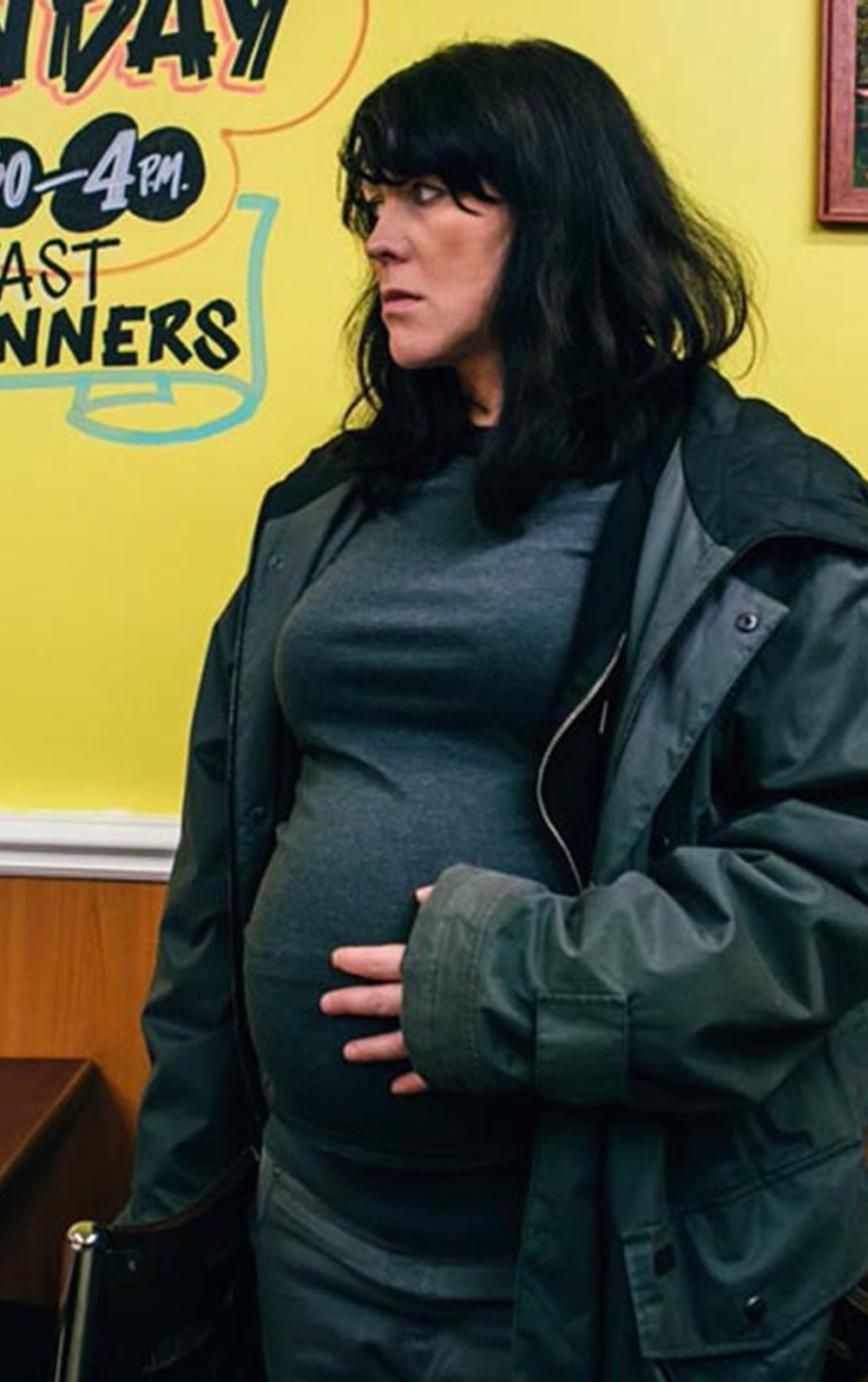Alice Lowe: ‘Cambridge was so many posh boys putting me down – I carried that with me for quite a long time’
The star of ‘Garth Marenghi’s Darkplace’ and ‘Prevenge’ has taken a left turn: dancing to vintage Take That for the jukebox musical ‘Greatest Days’. She talks to Annabel Nugent about murder comedies, cancel culture and the realities of being a female filmmaker today


It takes a lot to make Alice Lowe flinch. As an actor and writer who excels in playing loved-up sociopaths (Sightseers), pregnant widows on killing sprees (Prevenge) and murderous therapists (Black Mirror: Bandersnatch), Lowe, it’s fair to say, is at home in horror. And so it takes something truly awful – truly horrific, even – to frighten her. Like, say, learning from Take That’s Mark Owen that he and the rest of his band of Nineties dreamboats have seen videos of her grooving to their greatest hits. “You’re saying Take That have all watched me be really, really s*** at dancing?” Lowe cringes as she recalls Owen breaking the news to her recently.
For what it’s worth, “really s***” isn’t how I would describe it. “You only saw the best cuts!” the 46-year-old actor and filmmaker protests, sinking deeper into the sofa of the hotel room where we’re chatting. Indeed, only the best cuts made it past Take That’s quality control checks and into Greatest Days, a big screen adaptation of their 2017 jukebox musical. Owen, Gary Barlow and Howard Donald serve as executive producers – hence their interest in Lowe’s boogying capabilities.
Shuttling between the Nineties and the present day, the film follows a group of teenage girls who reconvene in their late thirties to attend their one-time favourite band’s reunion tour. It is a sweet, schmaltzy nostalgia-fest – and thus a completely left-field choice for Lowe who, since starring in Channel 4’s Garth Maranghi’s Darkplace, has cultivated a specific brand of grisly comedy that tends to involve a little more bite, and a lot more blood. Against the megawatt sunshine of Greatest Days, Lowe is nearly unrecognisable. Even today, I do a double take when I realise the owner of the blonde bouffant in the room was, in fact, Lowe. Her signature pitch black dye-job is no more. “It’s weird, isn’t it?” she laughs.
Lowe is fine with weird. In fact, it’s been her wheelhouse since she was a nerdy teenager in Coventry listening to Cat Stevens and sketching Medusa in her notebook. The staples of her work – hybrid genres, complex female leads, unlikeable protagonists – may be on-screen mainstays by now, but they, too, had once been a weird (and tough) sell. “I was pitching this stuff so long ago and people would say, ‘What are you talking about? We wouldn’t put comedy and murder together; we wouldn’t put two women fighting each other onscreen’. And now those things get made and they become massive hits, so I feel a mixture of joy that it’s happening but also… I was wanting to do this for ages!” She slams a fist on the cushion in front of her in mock furore.
Lowe did manage to sneak a few past the gatekeepers, though. Most notably, there was Prevenge, a comedy-horror she wrote, directed and starred in as a pregnant serial killer obeying orders from her malicious foetus. Lowe was barely a month shy of her own due date when she shot it. The film debuted to rapturous reviews and jimmied open new doors in the industry for her. “But even now you meet resistance,” she says. “People often want you to write exactly what you’ve written before. There is a pressure – and I think it’s connected with all this AI stuff – to make shows and films more uniform, as if you’re obeying an algorithm. It can’t have any anomalies to it.”
Early on, Lowe didn’t imagine herself on camera. She was studying Classics at Cambridge University when she became interested in experimental theatre, costume design, sound design and set design. Notably, she did not audition for the Footlights, the prestigious sketch comedy troupe whose alumni include Peter Cook, Hugh Laurie, Richard Ayoade, Emma Thompson and Olivia Colman (“I literally had no idea what Footlights was. I just thought it was people in straw boater hats.”) Her memories of Cambridge are a mixed bag. “God, it was really sexist, wasn’t it?” she exclaims with an eye roll. “Without a doubt, it was a massive privilege to have gone there but at the same time, I came from a comprehensive school, and it was another world. So many posh boys putting you down and making you feel like you can’t amount to anything. I think I carried that with me for quite a long time.”
It’s right that things get cancelled. It doesn’t have to be this dreadful thing
In 2001, Lowe found herself at the Edinburgh Fringe in Garth Marenghi’s Netherhead, a low-budget comedy-horror show written by Ayoade and Matthew Holness. It spoofed the works of Stephen King and won the Perrier award, which in turn landed Lowe an agent. Then came a string of sitcom appearances through which Lowe became, if not a recognisable name, then certainly a recognisable face on British telly. The Mighty Boosh, The IT Crowd, Little Britain and Horrible Histories have all welcomed Lowe’s delightful deadpan at one point or another. A number of those shows, though, have faced scrutiny in the time since they’ve aired. Episodes of The IT Crowd and Little Britain were recently removed from their respective streaming services due to offensive material. What does Lowe make of it all? “It’s funny because in some ways I think things change and we just roll with it,” she says. “And it’s right that things get cancelled. It doesn’t have to be this dreadful thing – you don’t have to think of it as censorship. Stuff changes, that’s fine and it’s good. It’s healthy to change.”
Lowe has noticed a different, equally troubling shift in the industry, in which bigwigs are making up for years of ignoring marginalised groups by greenlighting their features – but with a catch. “There is a rigidity about what you’re allowed to make [in those situations],” she says. “If you’re a woman, you’ve got to make a film about being a woman. And it’s got to have a political message that they agree with because that’s the reason they’ve given you the money. You’re not allowed to make whatever you want in the same way a male filmmaker is. It’s not perfect where we’re going. I think it will balance out at some point, but we’re in a flux right now and that flux is going to create carnage. There’s going to be organisations dying and it’s going to be a big change, but you do hope that we’re leading somewhere better... eventually.” The goal, she says, is creativity for creativity’s sake “without a policing of what the content is”. Lowe huffs, sounding exasperated by it all.

Later this year, Lowe will release her second film, Timestalker. It’s a romcom – “or my deluded, dark version of a romcom” – which follows a heroine’s pursuit of love across several centuries. “When I was writing it, I thought it was about love and fantasy but now I think I’ve just made a film about a woman who has to keep reviving her career.” Lowe lets out a cackle. “Because that’s what it is to be an actress. People stop using you and you have to f***ing get yourself out there. It’s exhausting!”
It’s for this reason that Lowe wrote Prevenge – to get herself out there after she was written off for daring to become pregnant and therefore apparently useless. Her experiences as a working mother have been better. “I think if people do have prejudices, they’re quite well hidden.” One thing she’s noticed, though, is a general distrust by some actors of filmmakers like herself. “This is something that people don’t talk about... if you don’t get star power behind your film, depending on the budget, you can’t make it,” she says. “And I think subconsciously there is a trust issue against female independent filmmakers sometimes. It’s like, ‘Ooh, Ben Wheatley, that’s exciting! Oooh, Ari Aster is exciting!’ and then it’s like, ‘Oh... Alice Lowe...’”

Why does she think that’s been the case? “I think female independent film directors are a more risky proposition, and I’m not saying that it’s got anything to do with being a mum but I do think there’s a general fear that – as a female director – you’re going to be emotional or overly stressed out, or that it’s just going to be a bit worrisome a job.” She continues: “It’s not directly about being a mother but it does also have something to do with actors worrying that what we’re doing is not as cool. It’s not kewl,” she mews the last word, dousing it in sarcasm. “Mums are a bit looked down on generally, [and] culturally in a way that’s a bit buried. It’s like if you’re a mum then you’re not cool – and it’s not something that’s applied to dads. You don’t go, ‘Oh that director’s got kids! He’s ancient!’”
Ageism undoubtedly feeds into it. Lowe recalls attending meetings with people who were shocked (read: disappointed) to learn she is older than they had previously thought. “There’s a sense that young female directors are tapped into the modern trendy things,” she says, suggesting that’s why industry bosses tend to favour them. “But really a director should have their unique perspective on everything. You don’t say to David Lynch, ‘You’re a bit old! All this Fifties stuff, it’s so over! Stop it with the Fifties s***.”
In case there was ever any doubt, Lowe believes her work is better than it’s ever been. “I’m at the top of my game,” she says matter-of-factly. “Literally. In terms of experience and age, this is the right time for me.”
‘Greatest Days’ is in cinemas
Join our commenting forum
Join thought-provoking conversations, follow other Independent readers and see their replies
Comments


Bookmark popover
Removed from bookmarks